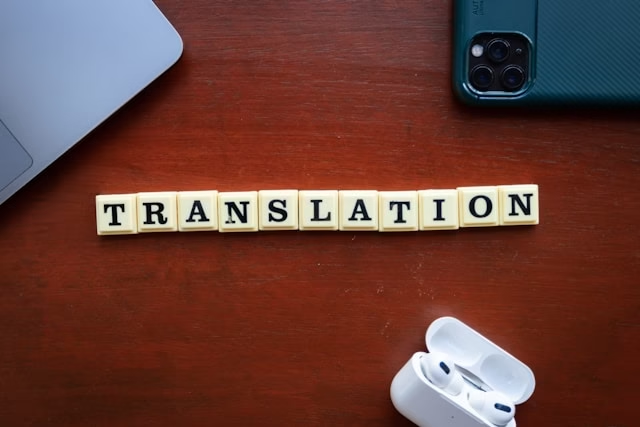In today’s hyperconnected and borderless world, communication knows no limits. Businesses, organizations, and individuals now have the power to connect with audiences across continents in real time. Yet, with this global reach comes a significant challenge—language. According to studies, there are over 7,000 languages spoken worldwide, and while English is widely used, it only accounts for a small percentage of the global population. To truly thrive in international markets, it’s no longer enough to rely on a single language. This is where content translation plays a crucial role.
Content translation is not just about converting words from one language to another—it is about bridging cultures, fostering inclusivity, and building trust. In a globalized economy, the importance of content translation cannot be overstated. Let’s explore why it matters, its benefits, and how it can shape the future of global communication.
Breaking Down Language Barriers
One of the most obvious and significant roles of content translation is breaking language barriers. The internet has made it easier than ever for businesses to showcase their products or services on a global scale. However, if your target audience cannot understand your message, your efforts go to waste.
Imagine launching a groundbreaking product in Europe or Asia with marketing materials only in English. While some consumers may understand, the majority may overlook or ignore your message simply because it doesn’t resonate with them in their native language. Research has consistently shown that people prefer to consume content in their own language, and they are far more likely to purchase from brands that communicate in ways they understand.
By investing in content translation, businesses open doors to entirely new markets and demographics, ensuring that no potential customer is left behind due to a language gap.
Enhancing Customer Trust and Engagement
Trust is the foundation of any successful relationship, and this applies equally in business. Customers are more likely to trust a company that values their culture and language. When you present your website, marketing campaigns, and customer service in a consumer’s native tongue, you demonstrate respect for their identity and show that you care about their experience.
Translation goes beyond just literal words—it involves capturing tone, cultural nuances, and even humor. A poorly translated message can come across as insensitive or confusing, potentially damaging your brand reputation. On the other hand, a carefully translated and localized message resonates deeply, leading to higher customer engagement, loyalty, and ultimately, sales.
Driving Global Business Growth
In a globalized economy, competition is fierce. Companies are constantly seeking ways to differentiate themselves and capture international market share. Translation is a strategic tool that allows businesses to scale beyond their local markets.
Consider e-commerce giants like Amazon or Alibaba. Their ability to translate and localize content for diverse markets is one of the key reasons behind their global success. From product descriptions to customer reviews, these companies understand that effective communication across languages is essential to building a truly global brand.
Small and medium-sized businesses can also leverage translation to expand their reach. With the right translation strategy, a boutique brand in India can successfully market to customers in Europe, or a startup in Brazil can attract clients in North America. In other words, content translation levels the playing field, giving every business the opportunity to grow globally.
The Role of Cultural Sensitivity
Translation is not a one-size-fits-all solution. Effective translation requires an understanding of cultural contexts. What works in one country might not work in another. For example, marketing slogans, idioms, or even colors can carry different meanings across cultures.
This is why professional translators focus not only on the language but also on localization—the adaptation of content to suit cultural preferences and expectations. A campaign that resonates with audiences in Japan might need a completely different approach in Mexico. By paying attention to these details, businesses avoid miscommunication and strengthen their brand image worldwide.
Supporting Education and Knowledge Sharing
The benefits of content translation are not limited to businesses. Education, research, and knowledge-sharing also heavily rely on effective translation. In academia, translating research papers ensures that knowledge is accessible to a broader audience, contributing to global innovation.
Similarly, in education, students around the world can access learning materials in their native languages, breaking down barriers to quality education. Translation empowers people to learn, share ideas, and collaborate across borders, ultimately driving global progress.
Facilitating Global Collaboration
The modern workplace is more global than ever before. Companies often employ diverse teams spread across different countries. Translation enables seamless communication within these multicultural teams, reducing misunderstandings and ensuring efficiency.
Moreover, in industries like healthcare, law, and technology, accurate translation can be a matter of life and death. For instance, translating medical documents or pharmaceutical instructions correctly is essential for patient safety. In legal matters, translation ensures fairness and clarity in international contracts and agreements.
This makes translation a cornerstone of global collaboration, allowing people from different backgrounds to work together effectively.
The Digital Era and Translation Technology
Advancements in technology have transformed the way translation is carried out. While machine translation tools like Google Translate offer quick solutions, they often fall short when it comes to nuance, tone, and cultural context. This is where professional content translation services stand out.
These services combine the efficiency of translation technology with the expertise of human translators, ensuring accuracy and cultural relevance. Businesses now rely on translation management systems, AI-powered tools, and professional agencies to streamline their global communication strategies.
Technology has also made real-time translation possible, allowing businesses to interact instantly with international clients, partners, and customers. The integration of translation with digital platforms such as websites, e-commerce stores, and social media ensures that global audiences feel included and valued.
Building an Inclusive Global Society
On a broader level, content translation promotes inclusivity and unity. It allows individuals from diverse linguistic backgrounds to participate in global conversations, from politics to climate change to cultural exchange.
By removing language barriers, translation fosters mutual understanding, respect, and cooperation among nations. In a time where the world faces challenges that transcend borders—such as pandemics, climate crises, and economic shifts—effective communication across languages has never been more important.
Conclusion
In a globalized world, language should not be a barrier but a bridge. Content translation empowers businesses to grow, builds trust with customers, enables global collaboration, and promotes inclusivity. From expanding markets to fostering education and knowledge-sharing, its importance cannot be overstated.
As technology advances and global connections deepen, the demand for high-quality translation will continue to rise. Businesses, educators, and organizations that invest in professional translation will not only stay competitive but also contribute to a more connected and inclusive world.
In short, translation is not just about words—it’s about people, culture, and the shared human experience. And in a world where communication defines success, content translation remains one of the most powerful tools at our disposal.







